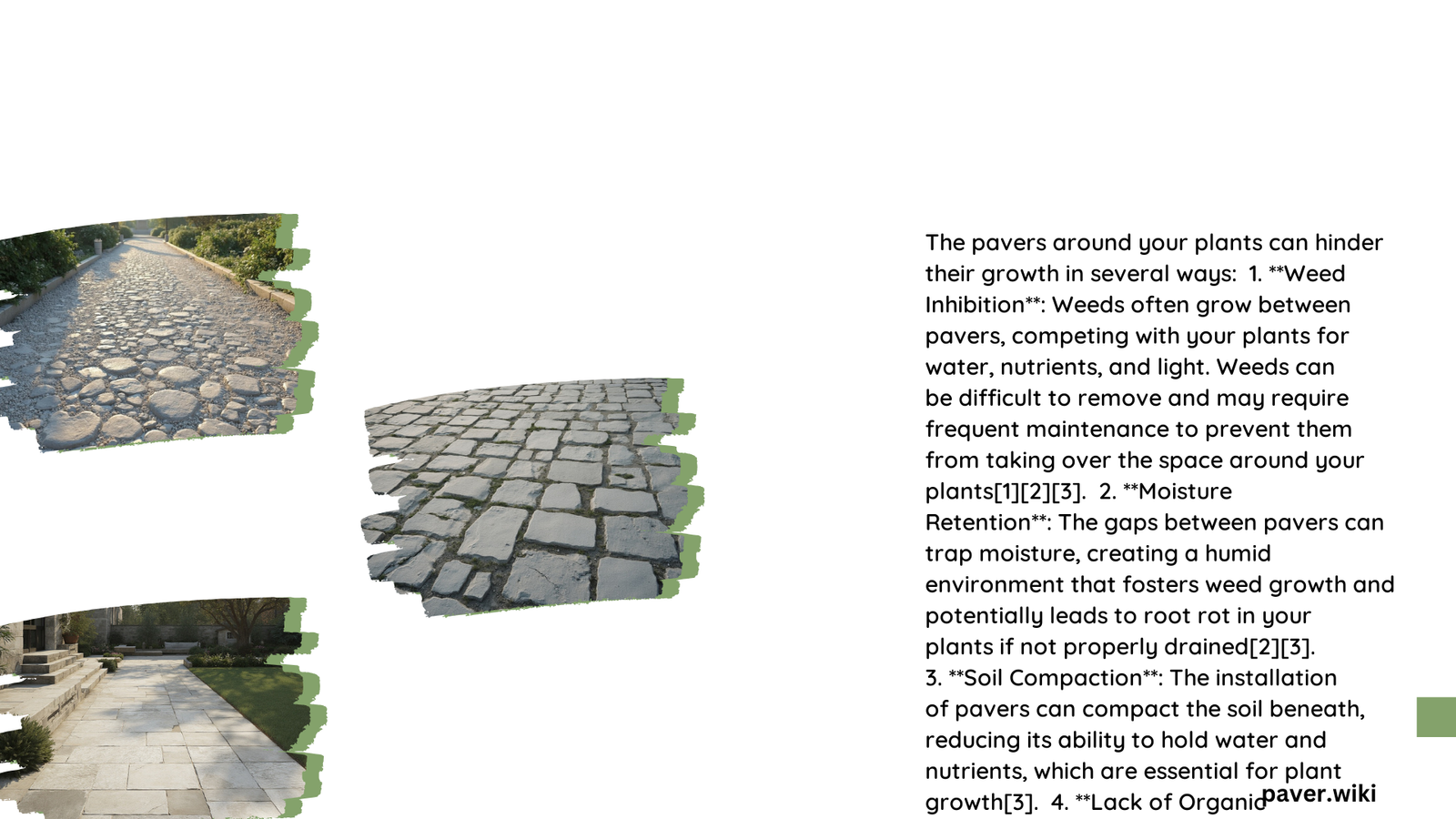Pavers can potentially impact plant growth through complex interactions with soil moisture, root development, and environmental conditions. While traditional impermeable pavers might restrict root expansion and soil breathing, modern permeable solutions offer alternatives that minimize negative effects on plant health. Understanding these dynamics helps gardeners make informed decisions about landscaping design and plant placement.
Do Pavers Restrict Plant Root Development?
Pavers can indeed influence plant growth, but the impact varies significantly based on the type of paving material and installation method. Let’s explore the nuanced relationship between pavers and plant health.
How Do Different Paver Types Affect Soil Conditions?
| Paver Type | Soil Moisture Impact | Root Development | Recommended Use |
|---|---|---|---|
| Impermeable Concrete | Reduced moisture retention | Limited root spread | Minimal plant proximity |
| Permeable Concrete | Moderate moisture retention | Moderate root growth | Suitable near plants |
| Pervious Pavers | Enhanced moisture exchange | Better root development | Recommended for landscaping |
What Challenges Do Pavers Pose to Plant Growth?
Pavers can create several challenges for plant growth:
- Reduced Soil Breathing
- Impermeable surfaces limit gas exchange
- Restricts oxygen availability to root systems
-
Potentially increases carbon dioxide concentration
-
Moisture Management
- Traditional pavers can block water infiltration
- Reduces natural soil hydration processes
- Creates microclimate with altered humidity levels
Can Permeable Pavers Minimize Plant Growth Hindrance?
Permeable pavers offer significant advantages:
- Enhanced Water Infiltration
- Allows water to penetrate soil layers
- Maintains more consistent soil moisture
-
Supports healthier root development
-
Improved Gas Exchange
- Creates pathways for oxygen circulation
- Reduces carbon dioxide accumulation
- Supports more robust plant metabolism
What Strategies Help Mitigate Paver-Related Plant Growth Issues?
Effective strategies include:
- Select permeable paving materials
- Create adequate spacing between pavers and plant roots
- Use root barriers when necessary
- Implement proper drainage systems
- Choose plants tolerant to modified soil conditions
How to Assess Paver Impact on Your Specific Landscape?
Recommended assessment steps:
- Evaluate current paver configuration
- Measure soil moisture levels
- Observe root development patterns
- Consult local landscaping professionals
- Consider soil type and plant species
Expert Recommendations for Healthy Plant-Paver Coexistence

Professional landscapers suggest:
– Maintain minimum 12-18 inch distance between pavers and plant roots
– Use geotextile materials for improved soil structure
– Implement periodic soil aeration
– Monitor plant health regularly
Technical Considerations for Optimal Plant Growth
- Soil Permeability: Critical factor in plant-paver interactions
- Root Zone Management: Essential for long-term plant health
- Microclimate Considerations: Impacts plant growth potential
Conclusion
While pavers can potentially hinder plant growth, strategic selection and installation can minimize negative impacts. Permeable solutions and thoughtful design create environments where plants and hardscaping coexist harmoniously.
